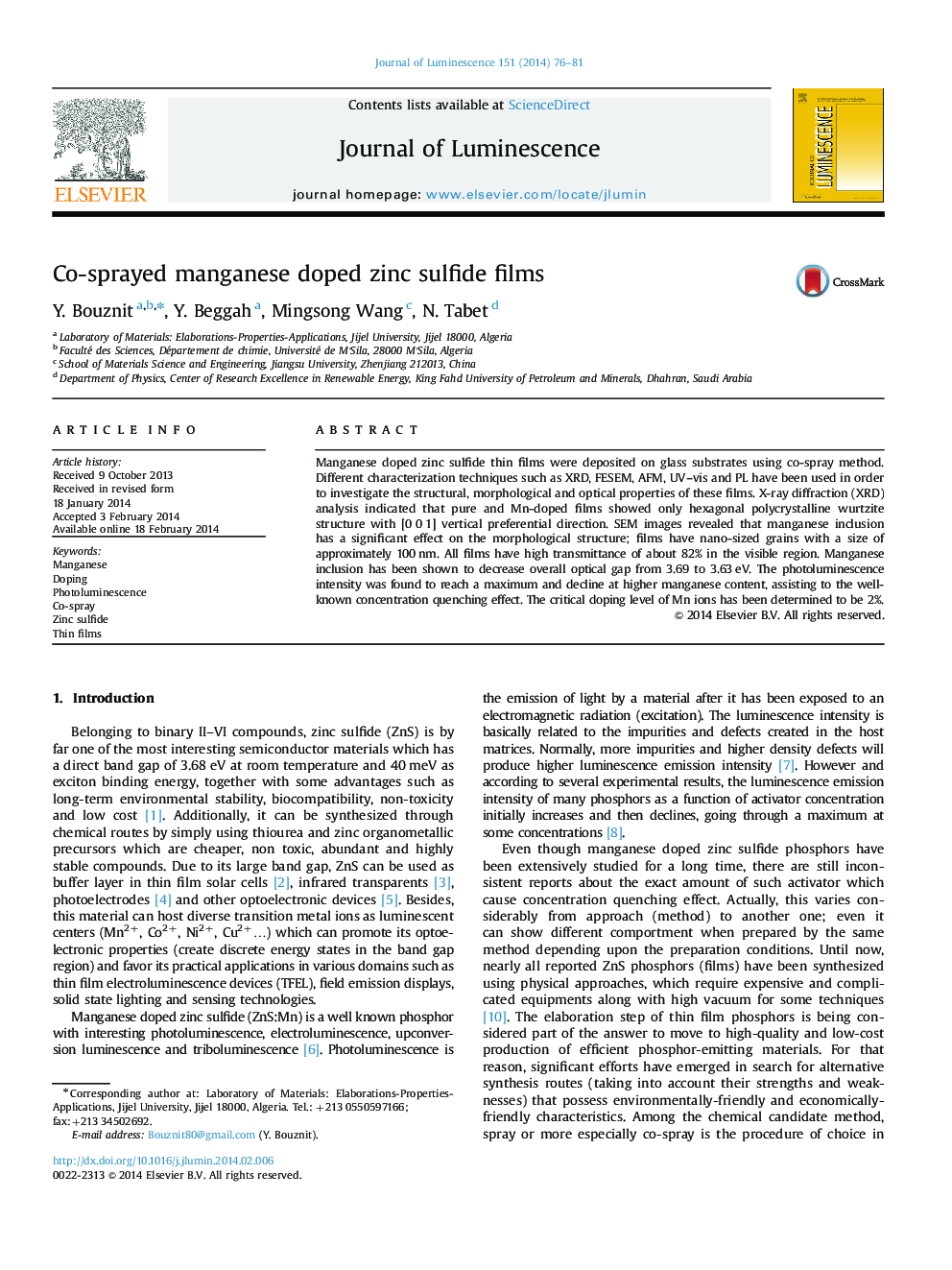| Article ID | Journal | Published Year | Pages | File Type |
|---|---|---|---|---|
| 5399884 | Journal of Luminescence | 2014 | 6 Pages |
Abstract
Manganese doped zinc sulfide thin films were deposited on glass substrates using co-spray method. Different characterization techniques such as XRD, FESEM, AFM, UV-vis and PL have been used in order to investigate the structural, morphological and optical properties of these films. X-ray diffraction (XRD) analysis indicated that pure and Mn-doped films showed only hexagonal polycrystalline wurtzite structure with [0Â 0Â 1] vertical preferential direction. SEM images revealed that manganese inclusion has a significant effect on the morphological structure; films have nano-sized grains with a size of approximately 100Â nm. All films have high transmittance of about 82% in the visible region. Manganese inclusion has been shown to decrease overall optical gap from 3.69 to 3.63Â eV. The photoluminescence intensity was found to reach a maximum and decline at higher manganese content, assisting to the well-known concentration quenching effect. The critical doping level of Mn ions has been determined to be 2%.
Related Topics
Physical Sciences and Engineering
Chemistry
Physical and Theoretical Chemistry
Authors
Y. Bouznit, Y. Beggah, Mingsong Wang, N. Tabet,
